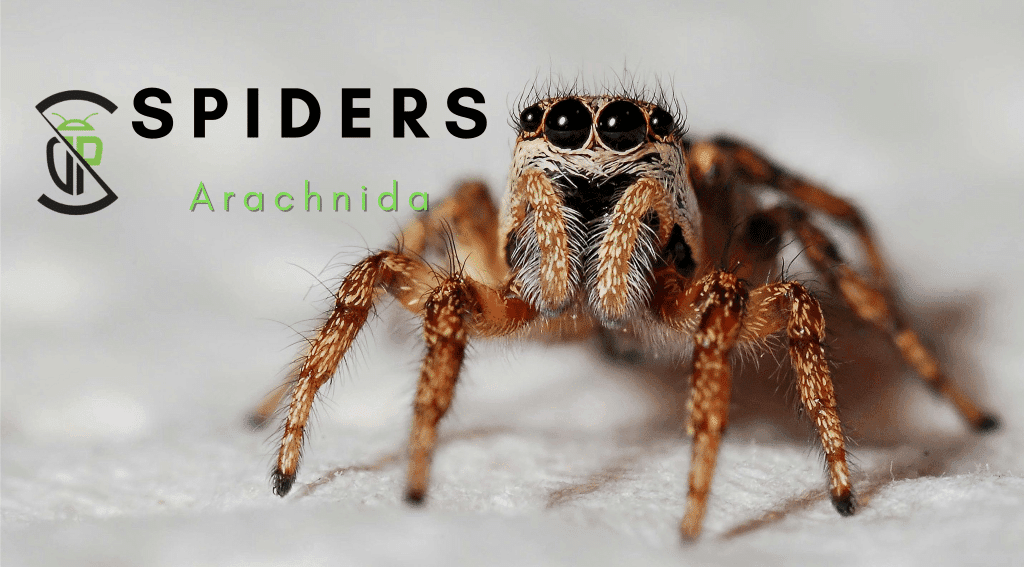Spiders in South Florida

Spiders are a common presence in South Florida, with over 900 species inhabiting the region. While most spiders are harmless and even beneficial by controlling insect populations, some can pose risks to humans. At Dade Pest Solutions, we specialize in effective spider control and prevention to keep your home safe. This guide will help you understand, identify, and manage spider infestations.
Common Spider Species in South Florida
Common House Spider (Parasteatoda tepidariorum)
- Identification: Brownish color with banded legs and light markings; two distinct dark stripes on the body.
- Habitat: Indoors, especially in corners, closets, and basements.
- Behavior: Builds messy webs and is generally non-aggressive.
Black Widow (Latrodectus spp.)
- Identification: Shiny black body with a red hourglass marking on the underside of the abdomen.
- Habitat: Outdoors in woodpiles, stone walls, and under eaves; indoors in basements and crawlspaces.
- Behavior: Venomous; bites can be painful and require medical attention.
Brown Recluse (Loxosceles reclusa)
- Identification: Brown with a violin-shaped marking on the back; six eyes arranged in pairs.
- Habitat: Dark, dry areas such as attics, closets, and under furniture.
- Behavior: Venomous; bites can cause severe reactions and should be treated by a doctor.
Daddy Long Legs (Pholcidae)
- Identification: Small body with very long, thin legs.
- Habitat: Damp areas like bathrooms, basements, and under kitchen sinks.
- Behavior: Harmless to humans; known for their web-building.
Jumping Spider (Salticidae)
- Identification: Small, often colorful spiders known for their jumping ability.
- Habitat: Indoors and outdoors; often found on walls, windows, and furniture.
- Behavior: Non-aggressive and beneficial for controlling pests.
Yellow Sac Spider (Cheiracanthium inclusum)
- Identification: Pale yellow to beige with dark-tipped legs; front legs longer than the others.
- Habitat: Indoors and outdoors; often found in gardens and homes.
- Behavior: Can bite if provoked, causing mild reactions.
Southern House Spider (Kukulcania hibernalis)
- Identification: Brown or black with fine fur and violin-like markings on the back.
- Habitat: Indoors in attics, basements, and garages.
- Behavior: Non-aggressive; often mistaken for the brown recluse.
Signs of Spider Infestation
- Visible webs in corners, ceilings, and other areas.
- Frequent sightings of spiders, especially in dark, undisturbed places.
- Egg sacs attached to webs or hidden in crevices.
- Increased insect activity, which can attract spiders.
Health Risks and Property Damage
While most spiders are harmless, some species like the black widow and brown recluse can pose health risks due to their venomous bites. Symptoms can range from mild irritation to severe reactions requiring medical attention.
Spider Control Solutions
At Dade Pest Solutions, we offer comprehensive spider control services:
- Inspection: Thorough assessment to identify spider species and locate nests.
- Treatment: Safe and effective removal of spiders and webs using specialized equipment and insecticides.
- Prevention: Implementing measures to deter future infestations, such as sealing entry points and reducing insect populations.
- Ongoing Monitoring: Regular check-ups to ensure long-term spider prevention.
Prevention Tips
- Seal Entry Points: Close gaps and cracks around windows, doors, and foundations.
- Reduce Clutter: Keep storage areas clean and organized to eliminate hiding spots.
- Maintain Cleanliness: Regularly clean corners, ceilings, and other areas where spiders may build webs.
- Control Insects: Reduce insect populations, which are a primary food source for spiders.
- Use Screens: Ensure windows and doors have properly fitting screens to keep spiders out.
FAQ
Q: How can I identify a spider bite?
A: Spider bites often appear as small, red bumps that may become itchy or swollen. In some cases, a rash or blister may develop around the bite site.
Q: Are all spiders dangerous?
A: No, most spiders are harmless and beneficial for controlling insect populations. However, some species like the black widow and brown recluse are venomous and can pose health risks.
Q: How can I prevent spiders from entering my home?
A: Preventative measures include sealing entry points, reducing clutter, maintaining cleanliness, and controlling insect populations.
Q: Can I remove spiders myself?
A: While you can remove individual spiders and webs, professional pest control services ensure safe and effective removal, especially for venomous species.
Q: What should I do if I find a spider nest in my home?
A: Contact Dade Pest Solutions immediately for a professional inspection and treatment plan. Early intervention is crucial to controlling infestations.
Q: How often should I schedule pest control treatments for spiders?
A: For optimal protection, we recommend seasonal inspections and treatments, especially during peak spider activity in late summer and early fall. For more information or to schedule a free evaluation, contact Dade Pest Solutions today. Our team of experts is dedicated to keeping your home spider-free and ensuring your safety and peace of mind.
